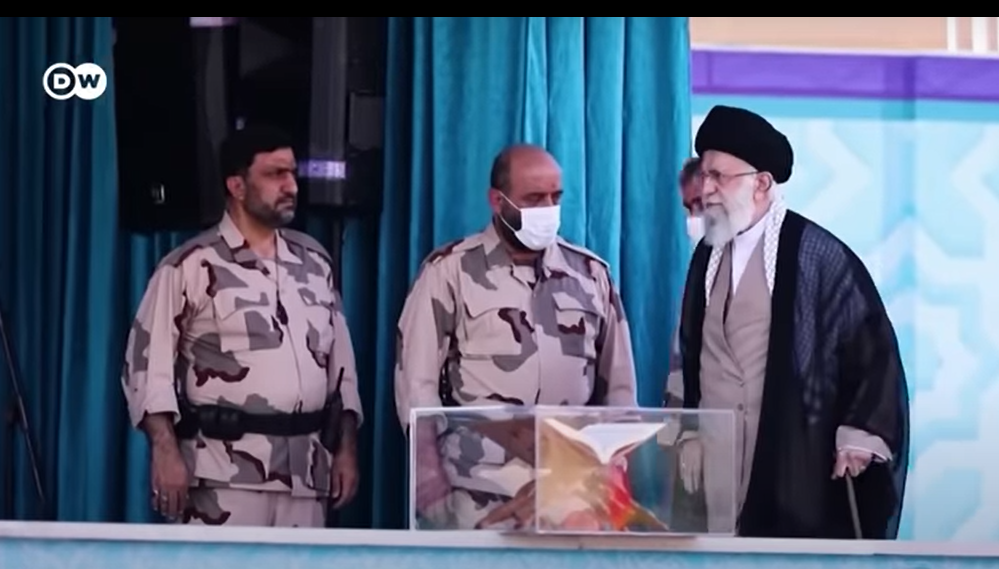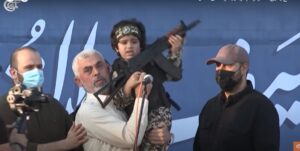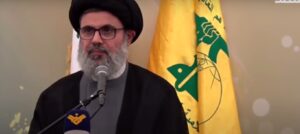The Hijab protest in Iran has been going on for about 5 months and its end is not in sight, there are already several hundred dead, thousands arrested and 5 protesters executed, this is the interim balance so far.
The protest, the largest in Iran’s history since the Islamic revolution in 1979, may eventually lead to the fall of the regime, but in the meantime it has led to the radicalization of the Iranian regime, which fears its own fate, and a greater strengthening of the power of the Revolutionary Guards.
The supreme leader Ali Khamenei became even more dependent on the Revolutionary Guards who are protecting his survival through brutal suppression of the demonstrations, the Hijab protest turned from a struggle against the wearing of the Hijab and a demand for women’s rights, to a protest movement calling for the overthrow of the regime.
Senior Iranian officials fear that the continuation of the protests will lead to the Revolutionary Guards taking over the institutions of the Islamic Republic and turning the regime into a dictatorial military regime to defend itself against the growing internal criticism and the external pressures of the Western countries on Iran.
Iran’s official television reported at the beginning of the week that Supreme Leader Ali Khamenei granted amnesty to tens of thousands of prisoners, including those who participated in demonstrations in the Hijab protest wave, the amnesty was given on the occasion of the anniversary of the Islamic revolution that took place in Iran in 1979.
It seems that Ali Khamenei is continuing with the carrot and stick policy to try and calm the protest wave that has no end in sight.
Make no mistake, the Iranian regime is not changing its strategy, the brutal repression used by the Revolutionary Guards is very effective and therefore it will continue, the regime is holding out, the protest wave has no leadership and there is a lack of coordination among the protesters, the difficult economic situation in Iran will mean that protesters will continue to take the streets.
Suppression of internal criticism
Despite the brutal suppression of the Hijab protest, there is also internal criticism of the regime from Shia religious scholars in Najaf and Qom and from former senior government and military officials.
The criticism is of the Iranian dictatorship and the failed management of the economy by President Ibrahim Raisi.
Former presidents Mohammad Khatami and Hassan Rouhani as well as former parliament speaker Ali Larijani criticized the brutal repression of the protesters.
Former President Mohammad Khatami and the Iranian opposition activist under house arrest, Mir Hossein Mousavi, issued separate messages ahead of the anniversary of the Islamic Revolution in which they called for deep reforms in Iran.
In response, the two became the object of an attack by the Revolutionary Guards, the newspaper Jawan, the mouthpiece of the Revolutionary Guards, accused the two on February 6 of subversion against the regime.
The Iranian regime is not ready to hear about any reform and is increasingly escalating its positions following the Hijab protest, this line is led by the Revolutionary Guards.
Supreme Leader Khamenei turned the wheel firmly in the direction of Russia, which is challenging the Western countries on the subject of the war in Ukraine, Iran supplies Russia with missiles and drones and hopes to receive from it Sukhoi 35 fighter jets and advanced S-400 air defense systems that can limit the freedom of operation of the Israeli Air Force aircraft in Syrian skies.
Supreme Leader Khamenei is not interested in signing the nuclear agreement and is not afraid of additional sanctions that the Western countries will impose on Iran.
In 2023, Iran is expected to continue the extreme line in its foreign policy as well as internally, this is the line dictated by the Revolutionary Guards, the western world shows weakness in the face of radical Iran, the only country that challenges it is Israel, the Biden administration and the European Union are not ready to take military action against Iran and hope that the protest of Hijab will later lead to the collapse of the Iranian regime.



